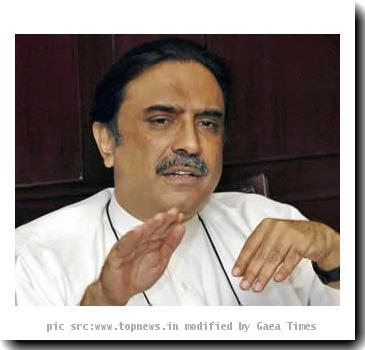Pakistan PM says medical system badly hit by floods; country bracing for disease outbreaks
By Asif Shahzad, APTuesday, August 24, 2010
PM says Pakistan bracing for disease after floods
ISLAMABAD — Pakistan’s medical system has been badly hit by weeks of flooding, with hundreds of health facilities damaged and tens of thousands of medical workers displaced, the prime minister said Tuesday as the country braced for the spread of disease.
Prime Minister Yousuf Raza Gilani’s announcement came as Pakistan’s chief meteorologist warned that it would be two weeks until the Indus River — the focus of the flooding still sweeping through the country — returns to normal levels.
Qamar-uz-Zaman Chaudhry said high tides in the Arabian Sea would slow the drainage of the Indus into it. Those tides, he said, will begin changing on Aug. 25.
“The flood situation is not yet over,” Chaudhry said, adding that the river would reach peak flood stage late this week.
The floods, which began nearly a month ago with hammering monsoon rains in the northwest, have affected more than 17 million people, the U.N. estimates. Millions of those people have been left homeless as the floods have swept southwards, submerging millions of acres of farmland.
Most of the 1,500 deaths occurred early in the flooding, but the crisis still is growing.
The United Nations High Commissioner for Refugees estimates that about 700,000 Pakistanis have been forced into makeshift settlements just in the southern province of Sindh.
While there have been no major disease outbreaks because of the floods, aid agencies are increasingly worried, saying contaminated water and a lack of proper sanitation were already causing a spike in medical problems in camps for the displaced.
“Pakistan and its people are experiencing the worst natural calamity of its history,” Gilani said at a meeting on health issues in the flood zone. “As human misery continues to mount, we are seriously concerned with spread of epidemic diseases.”
More than 3.5 million children are at risk from waterborne diseases, he said, and skin diseases, respiratory infections and malnutrition are spreading in flooded areas.
The problem is compounded by the flood’s impact on the country’s medical system — which has long been badly overstretched and underfunded. Gilani said the floods had damaged more than 200 health facilities, and that about one-third of the country’s 100,000 women health workers have been displaced. Those health workers are the main primary medical care to millions of rural Pakistani women.
Dr. Jahanzeb Orakzai, Pakistan’s national health coordinator, said a team has been formed to oversee the response to any flood-related health emergencies.
“Health problems usually arise in flood-affected areas after four to six weeks, and we need to be alert and prepared to tackle the situation,” he said.
The aid group World Vision said it could be three months until some families are able to return to their homes.
“People are in urgent need of almost everything: shelter, health clinics, clean water, sanitation and livelihood support,” Mike Bailey, the group’s regional manager for advocacy said in a statement.
The widespread misery caused by the floods has triggered worries about social unrest, food riots or even a challenge to the government’s rule before its term ends in 2013.
Local charities, the Pakistani army and international agencies are providing food, water, medicine and shelter to the displaced, but millions have received little or no help.
On Monday, President Asif Ali Zardari defended the government’s much-criticized response to the floods, but acknowledged recovery would take a very long time.
“Three years is a minimum,” Zardari said in an interview Monday with a small group of foreign reporters in Islamabad.
On Tuesday, officials announced that the government would give 20,000 rupees ($230) to every family affected by the floods, with a statement from Zardari’s spokesman calling the payment “initial assistance.”
Since the floods first swept the country, the Taliban and al-Qaida have been relatively quiet. But on Monday, three bomb attacks rocked the northwest, one of which killed the head of an anti-Taliban militia on the outskirts of the main city of Peshawar.
Associated Press writer Tim Sullivan contributed to this report.
Tags: Asia, Asif Ali Zardari, Diseases And Conditions, Emergency Management, Floods, Islamabad, Pakistan, South Asia

